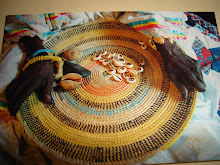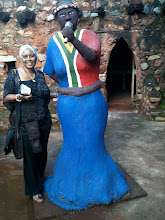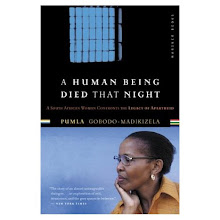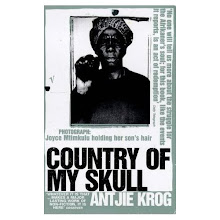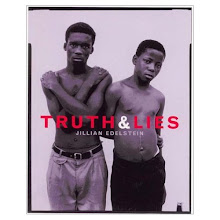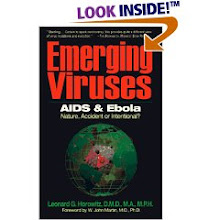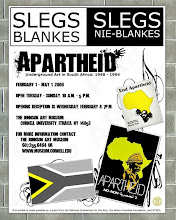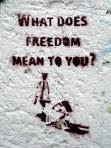
Sanibona! (Zulu greeting when addressing more than one person)
Yesterday I wrote about Ubuntu and today it seems fitting to capture another South African word. Apartheid the opposite of Ubuntu. And curiuos that the two words lived side by side in a racially divided horror that was apartheid. It means apartness in Afrikaans. My purpose is not to drone on about the unfairness of apartheid because that would do my people a gross injustice, but in my own exploration of my country to bring a view that reflects how Ubuntu has threaded through all the suffering that Aparthied brought. This is an honoring of my people an admiration and a respect that sits deep in my heart. It was a system of legalised racial segregation enforced by the National Party (NP) South African government between 1948-1994. It classified South Africa's inhabitants and vistors into racial groups( Black, White, Colored and Indian)
I was called a colored, I thought because of my diverse beautiful mixed ancestry, not so, it was because I was not black enough or white enough, so did not belong anywhere, a feeling I have carried until not that long ago. When we carry that feeling of not belonging as many do, we continue to experience a spiritual homelessness and consciuosly or unconsciuosly are searching for that "place", physically, literally or spiritually. However I attach a link so that you may read more about how coloreds were categorized. http://en.wikipedia.org/wiki/Coloured
My family are a truely amazing mixture of cultures. I was born in South Africa and left when I was 3 to live in London. Obviously not by choice but by descent. It was for education and a better life, a life that was better than being inhuman. Apartheid and the white government and people, saw to it that to be human was not a birthright if you were black, to live in one's own land as an equal was against the law as a black. As a colored I was treated more humanly than blacks. The more I read and learn about this "tragically beautiful country" as it was called by the writer Alan Paton, and its people, the more I am deeply struck by their resiliance, strength and courage in the face of deep inhumane conditions, suffering and poverty. Honestly those words don't do justice to the people, but I do not believe that there is yet a word. "What have we done? "Senzenina" "our sin is our blackness (Sono sethu ubumnyama) was a song that that emerged in the face of some of the worst inhuman suffering ever imagined and was sung at the funerals of people killed by the South African government.
A powerful book"Kaffir Boy" by Mark Mathabane, (Kaffir is of Arabic origin and means "infidel" it is equivalent to nigger in South Africa) describes a true story of a young black man's childhood to manhood in one of South Africa's notorious ghettos, where police raids and the witnessing of murders were his Rites of Passage. It is indeed extraordinary in its transmission of how the human spirit transcends and triumphs over hatred and degradation to become the first black boy to leave South Africa for America on a tennis scholarship. He faced what must have been the excrutiating and heartwrenching decision of finally landing a job in a bank which could have lifted his family out of poverty or be free, to follow his detsiny.
While reading this book I wept or was filled with rage and often delighted by the innocence of this child, boy and young man. Both emotions welled up from a place deep inside. Many feelings swept through my body and many questions have emerged since visiting my homeland for the first time in 52 years just 2 years ago was: who and what would I have become had I stayed? I had vowed never to return. What has been helpful to me over the years has been to continue to remember a few lessons:
When anyone acts out of guilt towards another oppressed group they dishonor the inherent strength that their ancestors had to possess in order to endure such unspeakable atrocities. When we think of ourselves as victims we label all those who came before us as victims rather than acknowledging their power and courage to survive (those who did and those who did not sacrifcied their lives.) In the face of evil there are many forces at work that are greater than the sum of the individual. The struggles of our ancestors have paved the way for us to claim the legacy that is rightly ours-freedom, and that is what Mark Mathabane knew he had to chose.
May your ancestors Bless and Protect you always
Hambani Kahle! (Zulu for "go well" when you are talking to more than one person)
Yesterday I wrote about Ubuntu and today it seems fitting to capture another South African word. Apartheid the opposite of Ubuntu. And curiuos that the two words lived side by side in a racially divided horror that was apartheid. It means apartness in Afrikaans. My purpose is not to drone on about the unfairness of apartheid because that would do my people a gross injustice, but in my own exploration of my country to bring a view that reflects how Ubuntu has threaded through all the suffering that Aparthied brought. This is an honoring of my people an admiration and a respect that sits deep in my heart. It was a system of legalised racial segregation enforced by the National Party (NP) South African government between 1948-1994. It classified South Africa's inhabitants and vistors into racial groups( Black, White, Colored and Indian)
I was called a colored, I thought because of my diverse beautiful mixed ancestry, not so, it was because I was not black enough or white enough, so did not belong anywhere, a feeling I have carried until not that long ago. When we carry that feeling of not belonging as many do, we continue to experience a spiritual homelessness and consciuosly or unconsciuosly are searching for that "place", physically, literally or spiritually. However I attach a link so that you may read more about how coloreds were categorized. http://en.wikipedia.org/wiki/Coloured
My family are a truely amazing mixture of cultures. I was born in South Africa and left when I was 3 to live in London. Obviously not by choice but by descent. It was for education and a better life, a life that was better than being inhuman. Apartheid and the white government and people, saw to it that to be human was not a birthright if you were black, to live in one's own land as an equal was against the law as a black. As a colored I was treated more humanly than blacks. The more I read and learn about this "tragically beautiful country" as it was called by the writer Alan Paton, and its people, the more I am deeply struck by their resiliance, strength and courage in the face of deep inhumane conditions, suffering and poverty. Honestly those words don't do justice to the people, but I do not believe that there is yet a word. "What have we done? "Senzenina" "our sin is our blackness (Sono sethu ubumnyama) was a song that that emerged in the face of some of the worst inhuman suffering ever imagined and was sung at the funerals of people killed by the South African government.
A powerful book"Kaffir Boy" by Mark Mathabane, (Kaffir is of Arabic origin and means "infidel" it is equivalent to nigger in South Africa) describes a true story of a young black man's childhood to manhood in one of South Africa's notorious ghettos, where police raids and the witnessing of murders were his Rites of Passage. It is indeed extraordinary in its transmission of how the human spirit transcends and triumphs over hatred and degradation to become the first black boy to leave South Africa for America on a tennis scholarship. He faced what must have been the excrutiating and heartwrenching decision of finally landing a job in a bank which could have lifted his family out of poverty or be free, to follow his detsiny.
While reading this book I wept or was filled with rage and often delighted by the innocence of this child, boy and young man. Both emotions welled up from a place deep inside. Many feelings swept through my body and many questions have emerged since visiting my homeland for the first time in 52 years just 2 years ago was: who and what would I have become had I stayed? I had vowed never to return. What has been helpful to me over the years has been to continue to remember a few lessons:
When anyone acts out of guilt towards another oppressed group they dishonor the inherent strength that their ancestors had to possess in order to endure such unspeakable atrocities. When we think of ourselves as victims we label all those who came before us as victims rather than acknowledging their power and courage to survive (those who did and those who did not sacrifcied their lives.) In the face of evil there are many forces at work that are greater than the sum of the individual. The struggles of our ancestors have paved the way for us to claim the legacy that is rightly ours-freedom, and that is what Mark Mathabane knew he had to chose.
May your ancestors Bless and Protect you always
Hambani Kahle! (Zulu for "go well" when you are talking to more than one person)

